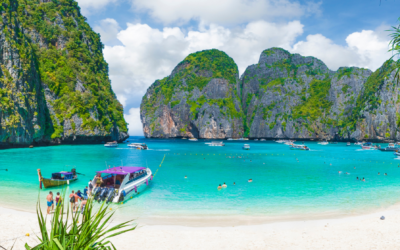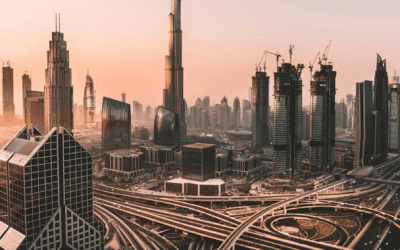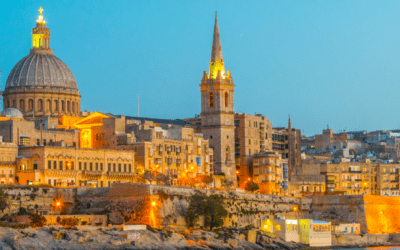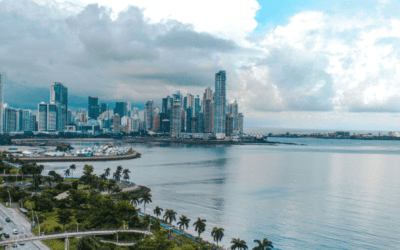Dateline: Hong Kong
As soon as I got off the plane, it hit me.
No, it wasn’t the incredible humidity here, even though Hong Kong makes Manila look like the Sahara desert with 32 degree (86 degrees Fahrenheit) temperatures and 85% humidity.
I flew in from the Philippines yesterday – just as the latest tropical storm hit – only to be reminded of the lesson I always remember each time I set foot in Hong Kong or even mainland China.
The lesson is that the Chinese culture is one of the most business-minded business cultures on earth. It’s proof in my mind of why these guys are undoubtedly going to run the world.
Exiting Hong Kong airport is always fast and easy. Taking the Airport Express into Central – which is riddled with banks – is fast. Even the process of getting an old British style red taxi, complete with back doors the driver opens as you go to get in, are efficient.
Heck, I was just happy to be back in a place where I could easily take US$1,000 out of an ATM without having my card spit back at me.
However, the thriving business scene here in Hong Kong is evident at almost every turn.
Walking out of my hotel in the city’s Sheung Wan district, I glanced at the various apartments for rent and sale around the city. (Somehow, I thought most Hong Kong investors were heading to invest in the Philippines and Malaysia as prices here reached bubble levels.)
To my amazement, the place was still humming along – doors wide open for business – at 9:30 at night.
In addition to the endless number of highly stable Hong Kong banks, businesses around the city seem to know how to get things done. It’s an east Asian cultural ethic that seems to favor efficiency.
Another ethic common here in China and throughout much of Asia is savings.
In fact, China has among the highest savings rates in the world.
Last week, I wrote about the western world being doomed due to largely “fatalistic” attitudes about work ethic in wheat-based cultures like that of the United States. Rice-based cultures, dominant here in Asia, tend to be more strategic and plan in advance.
One of the other factors causing the death of the West is its low savings rate. The western world operates at quite a contrast to China in this regard, as well.
Throughout history, Americans have not exactly been savers. Going back to 1959, the last year for which reliable data is available, the savings rate was barely 8%.
In the wake of stagflation in the 1970s, the US savings rate peaked at an all-time modern high of 14.6%, only to slowly fall ever since then.
Indeed, economic slowdowns have spurred Americans to save more, but not for long. Just as Americans have all but forgotten the lessons of the last US housing crash (what with the return of subprime lending and all), they have forgotten the lessons that spurred US household savings to a recent high of just over 5% in 2008.
In fact, last month, personal savings in the United States dipped to 3.5%, about as low as any other time on record.
Think about it: the average US household earns barely $51,000 a year… a figure that has dropped slightly in recent years. At current savings rates, that means the average family is putting just $1,700 in the bank each year.
Or, enough to cover a major car repair or small roof leak. One wrong move and the average family would be wiped out.
Doesn’t sound like a recipe for a stable, growing economy, does it?
Economists can argue that the low savings rate in The Land of the Free is because families are out spurring growth by spending money at the mall, the car dealership, and their local watering hole.
However, with real consumer inflation rates approaching 10%, the amount of money Americans have to spend on luxuries is quickly diminishing.
All of those 29-year-old firefighters showing off their new $42,000 trucks on Facebook better live it up, because a true day of reckoning is coming.
When that happens, entire industries will take a massive hit. Obamacare – just one government program that will take a bite out of employment in coming years – could single-handedly reduce Americans’ incomes enough to blow through their tiny savings accounts and put a serious damper on the economy.
Peter Schiff talked about this at our Passport to Freedom conference (available on DVD). “Who is buying all of this stuff?”, he asked, showing the real numbers that indicate why a low savings rate is doing Americans no favors.
Here in China, the picture is quite the opposite.
In fact, I remember the first time I visited Mainland China years ago. Standing in a park next to a man who looked rather haggardly, I remember my Chinese escorts telling me that most people in the small city – even those who looked one step from homelessness – had actually saved quite well over the years.
Imagine, a guy who could pass as a bum with missing teeth and all having more money to his name than the average American with their tract home and brand new F-250.
There are more than one billions Chinese with some form of savings accounts, many of them, of course, outside of the banking system.
Stories of young Chinese saving as much as half of their salaries are now commonplace. Men, who are expected to provide an apartment and a car if they want to marry the most eligible women here, are working harder than ever to save the 50% down payment on a home, whose values have soared out of control.
Chinese real estate cooling measures have prompted Chinese to do something many in the west would never dream of in order to buy a house: work.
Other countries with high savings rates are predominately located in the Middle East. Qatar, Bahrain, Kuwait, and the United Arab Emirates all save nearly half of their incomes.
What economists fail to note about China is the high amount of shadow lending going on. Chinese save money not only to buy homes and to buy gold as a store of value, but to lend to family and friends with successful businesses. Rather than demand some government action to stimulate credit to a bunch of broke people, Chinese are lending money in what statist economists call an “underground economy”.
Or as the rest of us call it, “lending money to people more creditworthy than high frequency traders fixing the stock market”.
Not only is east Asia home to perhaps the best business culture in the world (not to mention some of its best opportunities), it is home to people who largely have the savings to execute on their goals. That will be highly impactful to the economies of this region in years to come.
Meanwhile, countries with no or low savings rates, like most of the bankrupt western world, will continue to crumble. If you are holding all of your assets in those countries, you undoubtedly hold the greatest risk as the economy around you is set to collapse when wrong one move sends the whole system collapsing.
Peter Schiff believes the next crash will make 2008 look like a picnic. I certainly believe the savings philosophy of the western consumer culture will do the already bankrupt countries there no favors.









